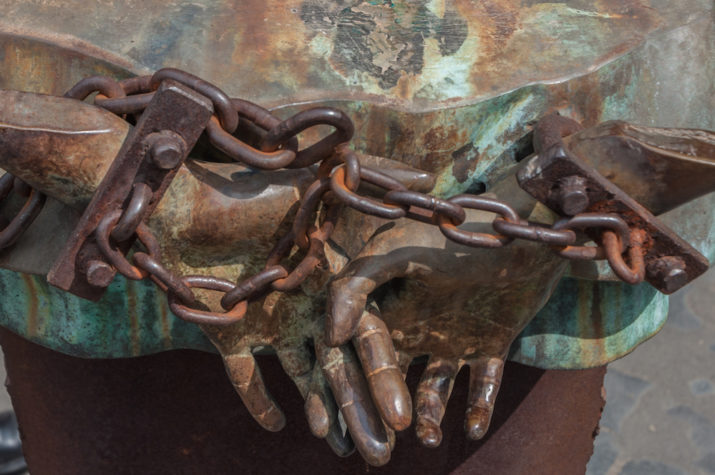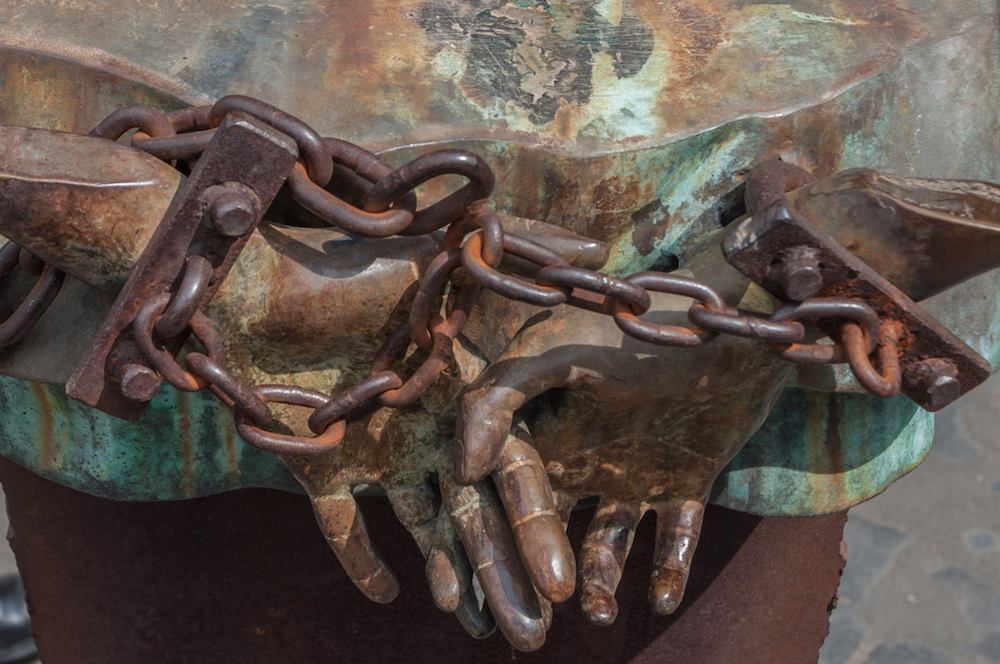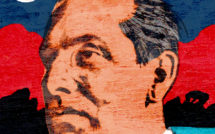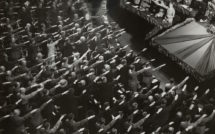

Part III of Louie Dean Valencia-García’s series The Rise of the European Far-Right in the Internet Age.
In 2006, Integral Tradition Publishing’s website pronounced an affinity for orthodox texts—whether “Vedic-Aryan, Islamic or Catholic.”[1] ITP posited a belief in the “cycle of meta-history”—what their website described as golden, silver, bronze, and iron ages.[2] For this small Danish company, the contemporary historical moment represented a so-called iron age, the low point in the cycle. Ironically, despite being a transnational online company, many of the works sold by ITP rejected both globalism and modernity. ITP desired to restart the so-called metahistorical cycle—to begin a new golden age.[3] Indeed, if Francis Fukuyama declared the “end of history” in the 1990s,[4] ITP sought to restore some imagined, lost past (that never really existed), thus restarting the cycle. To do this, ITP/Arktos, promoted what I call “alt-histories”—alternative imaginings of the historical past (Or, to borrow from United States Counselor to the President Kellyanne Conway, what we might call “alternative facts,” or false or intentionally misrepresented facts, which I argue are reconstructed into alternate histories that are used to legitimate a political régime) so that to construct a new sort of future based on that imagined, ahistorical past. The Alt-Right’s project, in tantamount, advocates for a white ethno-state, spanning from Europe to the United States legitimated by an imagined homogeneous past.
Established by many of the original ITP collaborators, most of whom no longer are with the company, Arktos dominates the field of far-right publishing, and has published and translated authors with the purpose of radically transforming the conservative and neoliberal right—calling forth a return of the “real right,” as Arktos C.E.O., Daniel Friberg, articulates in his less-than-eloquent manifesto work published in 2015.[5] Today, Arktos publishes books in twelve European languages, with titles such as: Dissent Dispatches: An Alt-Right Guide to Christian Theology; A Handbook for Right-Wing Youth; The Colonisation of Europe; The Indo-Europeans: In Search of the Homeland; and Against Democracy and Equality: The European New Right—just to name a few. While Arktos’ publications rarely evoke the term “fascism” directly, when taken together, the more than 140 books published by Arktos reflect a fascistic, far-right, white supremacist ideology. Indeed, the term “fascist” or “neo-fascist” might simply not be adequate to describe Arktos’ neo-traditionalist, Alt-Right, Identitarian thought. The aforementioned recent publications, Alt-Right/far-right guides, false histories, and apocalyptic mythic tales, targeted toward Christians and young people, hint to where the Alt-Right/New Right seeks to expand its membership.
Former editor-in-chief John Morgan said in a speech given in 2015 at Identitarian Ideas, an annual far-right conference held by the publisher:
What Arktos is trying to do could perhaps be summarized as trying to find alternatives to Modernity. Which basically means alternatives to the current liberal order, which is based on individualism and materialism, and the dominance of the state over every aspect of its people, which runs contrary to anything traditional or communitarian, and it’s spread everywhere across the world…Arktos’ idea is that we should take a broad approach to the desire to seek an alternative to liberalism.[6]
In that talk, Morgan also cited Michael O’Meara’s New Culture, New Right and Tomislav Sunić’s Against Democracy and Equality: The European New Right, both of whom draw from Alain de Benoist and the French-based ethno-nationalist think tank GRECE (Groupement de recherche et d’études pour la civilisation européenne). Morgan makes his rejection of modernity clear, as well as his diagnosis of what is to be done: [7]
[T]he radical liberals have managed to convince the vast majority of people that the mode of life we are in today is something completely normal…Therefore, what we need to do is to imitate their example, but in our own way. This means waging war on the cultural as well as the political level. It may be difficult to discern on the surface how books on political philosophy…help in this endeavor, but I would argue that it is very difficult to motivate people simply using straight-forward political arguments…People need a vision of the future that can inspire them, and give them something not only to fight for, but to give them motivation in their daily lives. I believe that books remain one of the best ways of instilling this sort of vision in people.[8]
Here, Morgan describes Arktos’ strategy to launch a culture war that inspires nationalism—that seeks to “return” the West to the “traditions” of the past. Morgan also imagines some sort of pure past where culture has not been corrupted. For Morgan, modernity represents a break from heritage; he does not see culture as pluralistic and in motion. Like Nazi-Fascists before him, anything that does not fit into his imagined Golden Age mythology is degeneracy.
Morgan remarks, if he were to pick one term to describe Arktos, he would borrow the term “true right,” which he describes as coined by the “Italian traditionalist philosopher Evola,” who defined it as “those principles which were accepted and seen as normal by every well-born person everywhere in the world prior to 1789.” By marking 1789, Morgan (and Evola) clearly references the French Revolution as the epicenter of liberal democracy. Morgan argues:
…[I]f we are to defeat our liberal, globalist enemy, we ourselves must adopt an alternative form of globalism, seeking alliances and common ground with individuals and groups who share our interests everywhere, even outside of Europe…Only together, by working with nationalists and traditionalists everywhere can we succeed. [9]
While Senholt and Boch had left Arktos, Morgan continued his affiliation with Arktos until spring 2017, when in-fighting with Friberg resulted in Morgan’s dismissal.[10] [11] with Morgan’s ouster, Daniel Friberg had wrestled control over the print and digital publishing fiefdom of the European Alt-Right.[12] One might speculate that Arktos’ toleration of non-European traditionalist schools of thought might continue to be diminished in Arktos’ catalogue in the years to come, given Morgan’s departure and particular interest in the occult.
Both Boch and Morgan were excoriated online in an article written by Arktos in June 2017 for having had raised questions of embezzlement against Friberg, which were never proven. At the end of the incident, which resulted in the dismissal of several members of the Artkos staff, frozen PayPal accounts, and legal action, Arktos, as a company, told their side of the situation, calling attention to Boch, who was referred to as the former accountant for Arktos instead of as co-founder and former director. The incident highlighted some of the internal weakness within the organization—e.g., a reliance Arktos has on the internet. Without the internet payment service, PayPal, the company was in peril. The incident also demonstrated ways racism has caused problems internally within Arktos. To diminish the accusations of embezzlement lodged by Boch and Morgan, Artkos stated in a straw-man attack: “Curiously, Boch is a member of the Hare Krishna cult—famous around the world for panhandling and its hokey moralizing—and is married to and has a family with a woman of dark complexion.” The article also noted Morgan’s time as a Hare Krishna.[13] These critiques attempted to discredit the men in what can be understood as a racialized attack against Boch for marrying a “woman of dark complexion” and against Morgan for having been a Hare Krishna during his time in India. To treat what amounts to melatonin quantity and religious practices as an accusation indeed highlights the ways racism plays out even inside of the far-right publisher.
Since leaving Arktos, Morgan has gone on to join as a book editor for the ethno-nationalist publisher Counter-Currents, which also publishes and distributes many of the same authors as Arktos.[14] Indeed, the Counter-Currents website echoes some of the type of language previously found on ITP: “Counter-Currents Publishing, Ltd., takes its guiding principles from French Traditionalist René Guénon’s The Crisis of the Modern World…History is cyclical, and its prevailing current is downward, declining from a Golden Age through Silver and Bronze Ages to a Dark Age…We live in a Dark Age, in which decadence reigns and all natural and healthy values are inverted.”[15]
Louie Dean Valencia-García, Ph.D. is an Assistant Professor of Digital History at Texas State University. He has taught in the Faculty of Arts and Sciences at Harvard University, and serves on the Research Editorial Committee for EuropeNow. His forthcoming book, Antiauthoritarian Youth Culture in Francoist Spain: Clashing with Fascism, will be published by Bloomsbury Academic in May 2018. He has held fellowships from the Andrew W. Mellon Foundation, the United States Library of Congress, the Spanish Ministry of Education, Culture and Sport, and Santander Universities, amongst others. This essay is part of a collection in-progress, Alt-Histories: Far-Right Revisionism and the End of History.
Photo: Rome, Italy – Metal sculpture of human figures with hands chained by Mimmo Paladino is a monument to victims of the holocaust as well as all potential targets of fascism and racism | Shutterstock.
References:
[1] “About Us,” Integral Tradition Publishing, archived March 15, 2007, https://web.archive.org/web/20070315013345/http://www.integraltradition.com:80/catalog/about.php.
[2] Ibid.
[3] Ibid.
[4] See: Francis Fukuyama, The End of History and the Last Man (New York: Free Press, 1992).
[5] Daniel Friberg, The Real Right Returns: A Handbook for the True Opposition (London: Arktos, 2015).
[6] The Metapolitics of Arktos.
[7] Though, I am certain Bolshevik leader Vladimir Lenin would not appreciate this use of his words to describe Morgan’s motivations.
[8] The Metapolitics of Arktos.
[9] Ibid.
[10] Senholt left Arktos on 1 December 2011, Boch on 29 February 2012. See: “People for ARKTOS MEDIA LTD (07073448),” Companieshouse.gov.uk, accessed August 05, 2017, https://beta.companieshouse.gov.uk/company/07073448/officers. See records: X11UP5ZS and X190U64O.
[11] In 2007, the ITP website also listed Sergio Knipe, who was described as in the process of “completing a Ph.D. on Greco-Roman blood sacrifice at the University of Cambridge”. Knipe was interested in Late antiquity, (neo-)paganism, Hinduism, radical environmentalism and modern traditionalist thought. Others listed were David Wingfield, who lived in Nottinghamshire, England, and Martin Häggkvist, who was studying a magisterexamen degree at the University of Umeå in Sweden. See: “About Us,” Integral Tradition Publishing, archived October 12, 2007, http://web.archive.org/web/20071012195910/http://integraltradition.com:80/catalog/about.php.
[12] Arktos, “The Attacks on Arktos,” AltRight.com, June 17, 2017, archived June 18, 2017, https://web.archive.org/web/20170618030046/https://altright.com/2017/06/17/the-attacks-on-arktos/.
[13] Ibid.
[14] “About,” Counter-Currents Publishing, archived June 22, 2017, https://web.archive.org/web/20170622020411/https://www.counter-currents.com/about/.
[15] “About Us,” Integral Tradition Publishing, archived October 12, 2007, http://web.archive.org/web/20071012195910/http://integraltradition.com:80/catalog/about.php.
Published on February 15, 2018.




